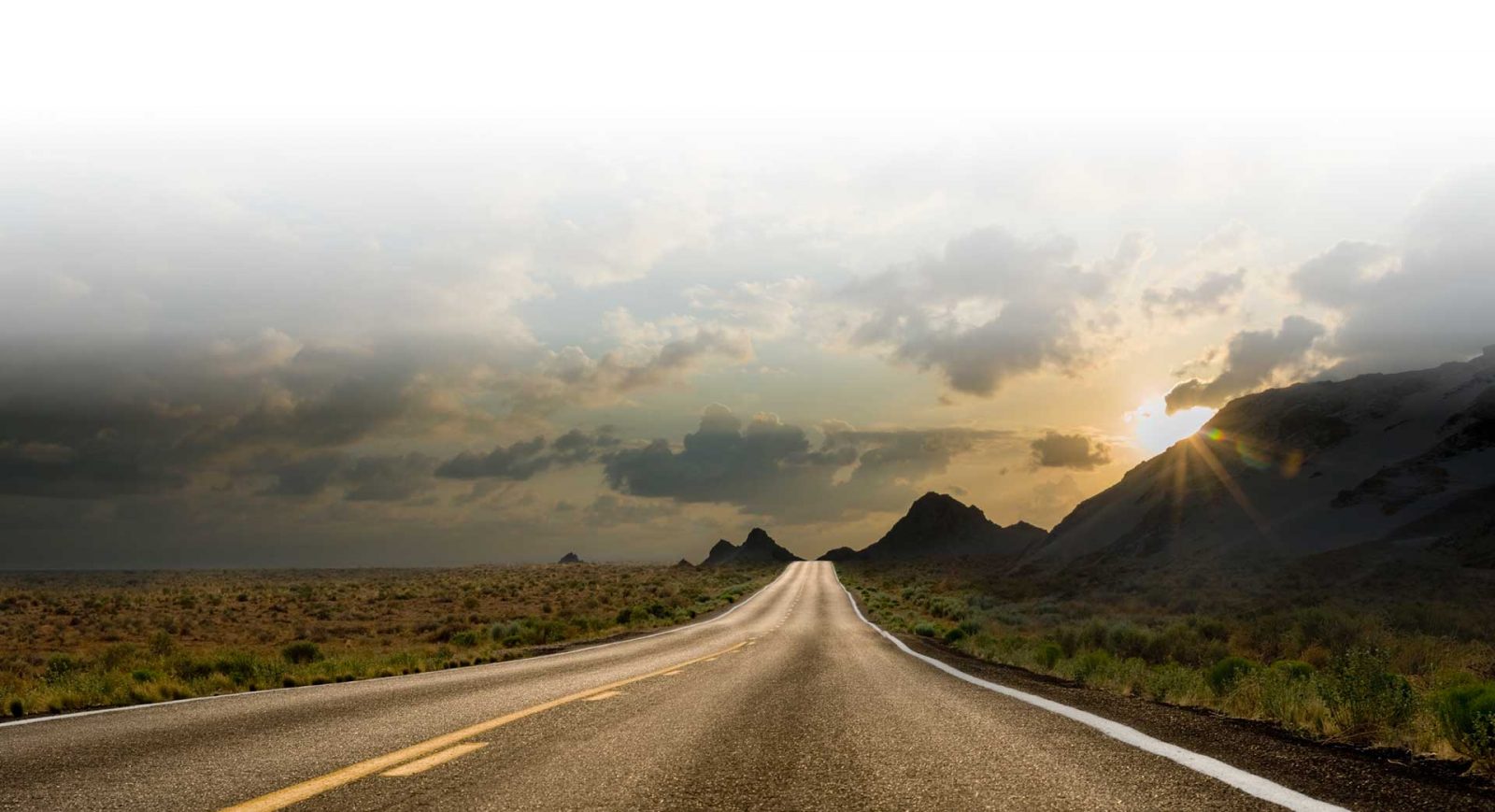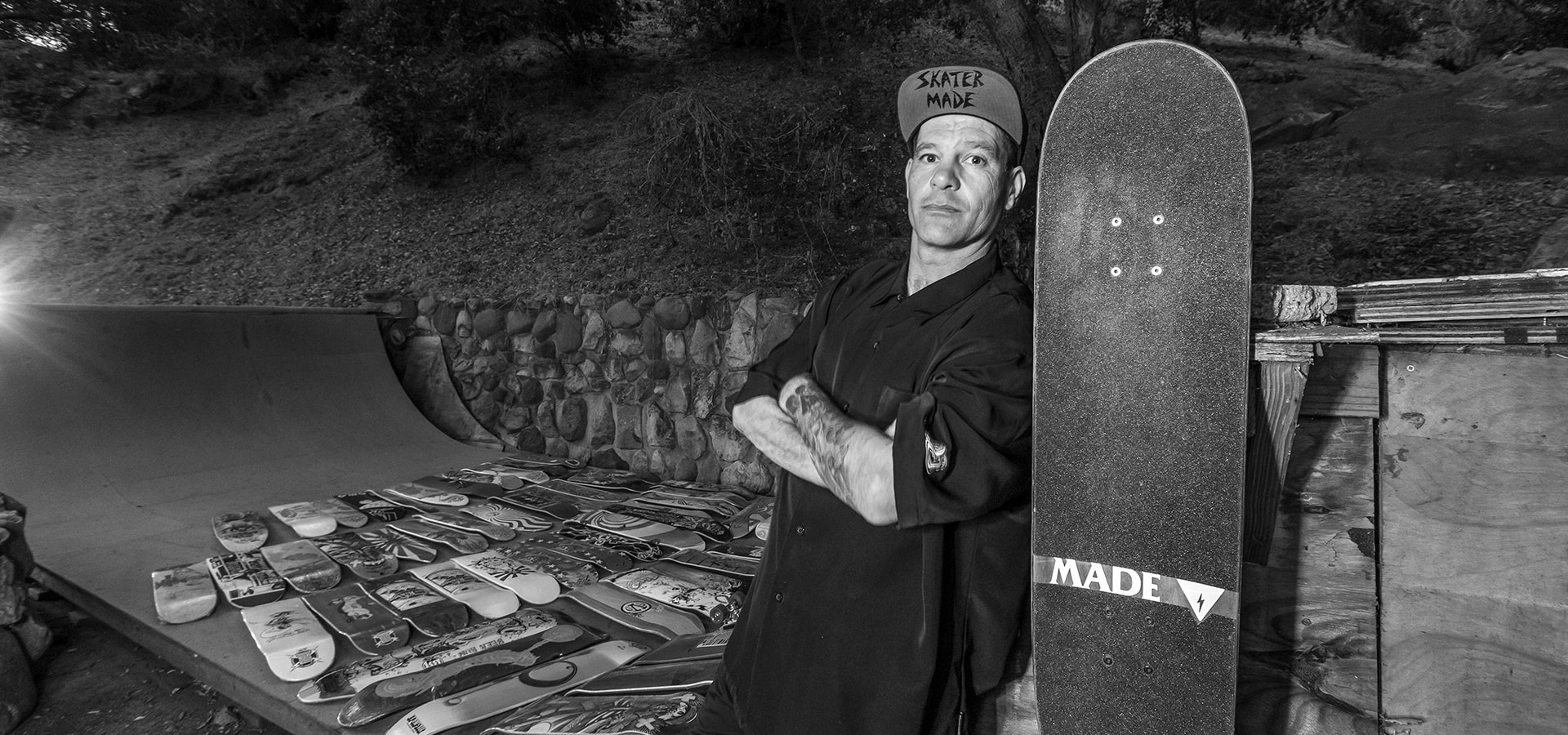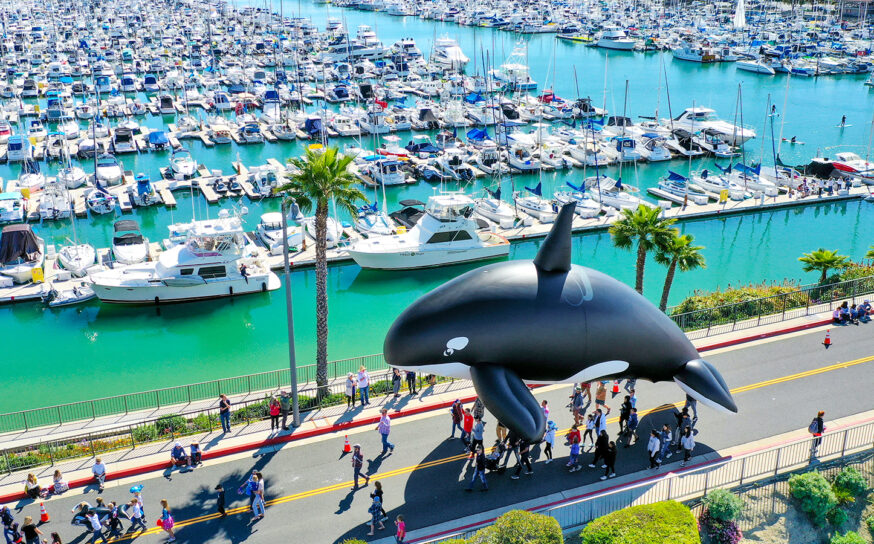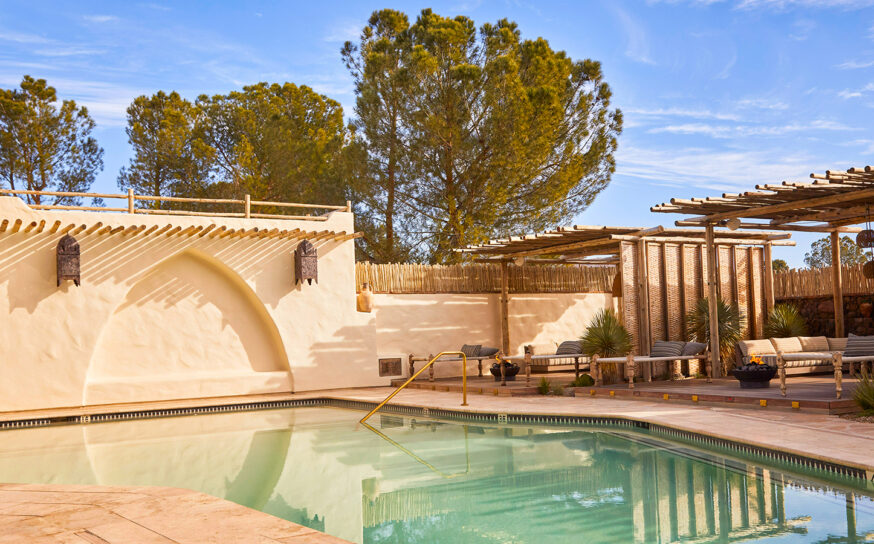Dogtown-Era Skateboarder Bart Saric Reflects on Venice Culture and Community Then and Now
His mantra: “Show respect. Get respect.”
-
CategoryArts + Culture, Time Capsule, Visual Art
-
Written byBonnie Graves
-
Photographed byMonica Orozco
I aspire to hang out with people who are cooler than me, and frankly, it’s an easier task than I’d like to admit. My longtime neighbor, Bart Saric, cheerfully answered my call when I was looking to arrange a skateboarding clinic in our canyon for a bunch of wily six-year-old boys. What I didn’t know at the time was that landing Bart to teach your kid how to ride is a lot like asking Kelly Slater or Laird Hamilton to paddle out for you. Bart is humble, humbler than he needs to be because, yep, he’s also cooler than you.
A multi-faceted filmmaker, visual artist and owner of Skater Made Skateboards, Bart came of age in Santa Monica and Venice Beach during the much-heralded Dogtown era. We caught up with this busy entrepreneur to talk about what defines his artistic vision, how to be a cool dad and how the Southern California beach cities have seemingly now morphed into “Silicon Beach.”
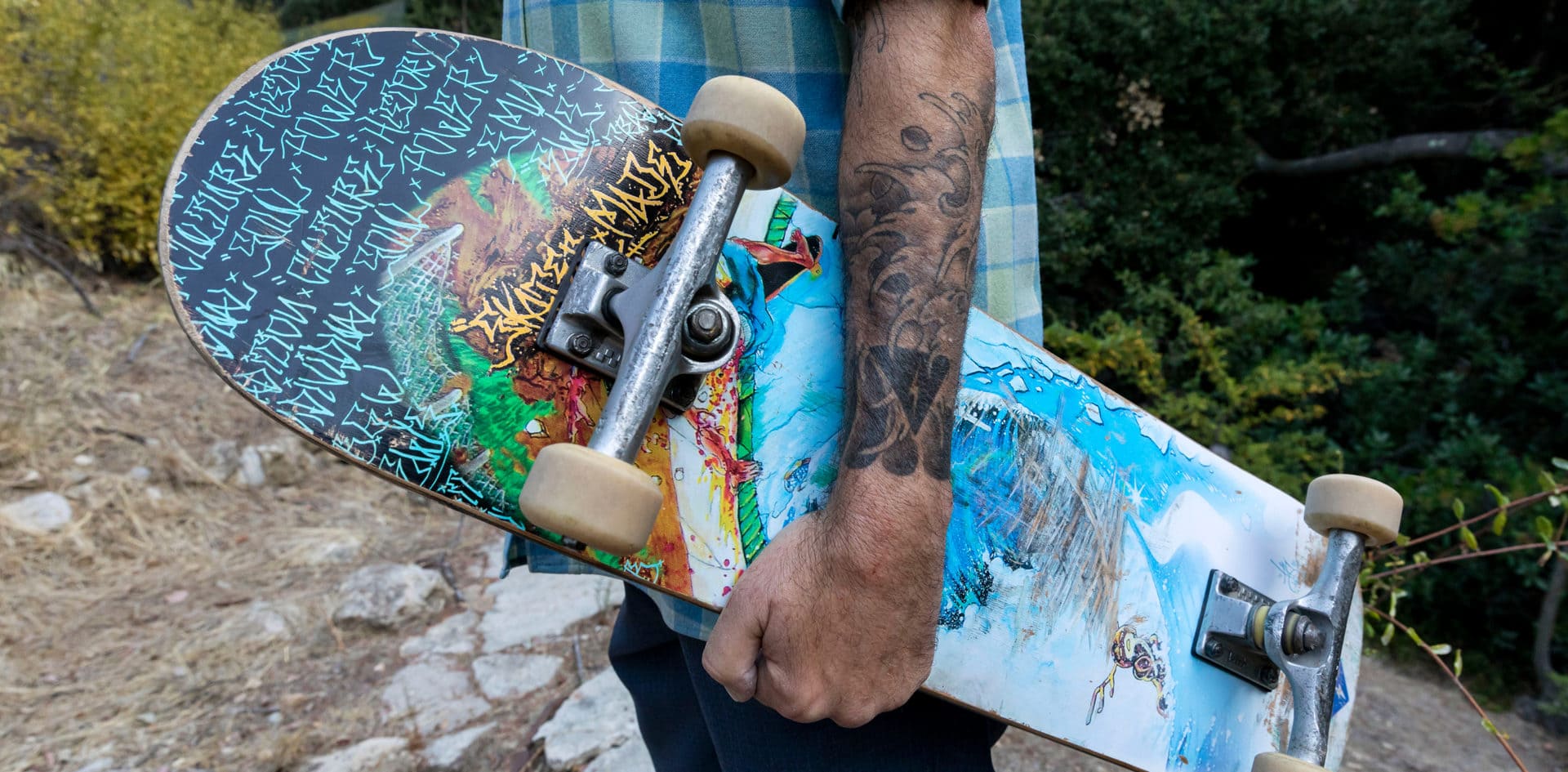
One of the things that’s super cool about you is the diversity of your talents, from skateboarder to visual artist to business owner to filmmaker. If someone were to ask you what you “do” for a living, how would you respond? Does any one role define you more than another?
Bart Saric: Thank you so much! It’s always kept life popping. No real dull moments. Yeah, I kind of feel like the roles I play all emerged for their own reasons, creatively for survival. I learned more than a few skills on this journey, surviving in different working platforms. I’ve been coined a “Dogtown Renaissance Man” in the past. I prefer to think of myself as an all-around artist just like I’ve been an all-around skateboarder, which is itself living art. In no particular order, the role title associations are generally: Artist in the Art world, Filmmaker in that world, the ‘Skate Whisperer’ is one of my favorites, B-Art, “Bartman” as a skater, etc. It kind of depends what world/people I’m involved with, as that usually dictates how I will be defined.
You have roots in the classic Dogtown skateboarding era in Venice and Santa Monica. As you’ve grown and become a father yourself, what do you think was most meaningful from your own childhood and teenage years spent riding and surfing? Does a cool kid automatically become the cool dad?
BS: Personally, I think “cool” is a fine line to walk. I was no one cool in Dogtown when it was setting the standard for the rest of us. No one was, until one proved himself in some kind of positive or radical way. Everybody certainly has their moments, but I like to think that the consistency of such moments speaks volumes if your cool is ultimately real. Witnessing the passion and DIY attitude of the locals had an impact on me … showing us how to live in the moment, showing that living passionately and making things happen on your own, no matter what, is worth living for. That power of one, in a biological sense too.
If you made a real difference in the street, town, state or country you live in, it meant something special. That’s when I think it reflects a discipline that meets a standard consistent with what one thinks is cool. As a father, I try to do my best to be consistent with my son. Firm, but loose enough to react to a situation accordingly. Good reactions and intentions to me are essential to what cool should be. Some of the coolest people I know are the most humble.
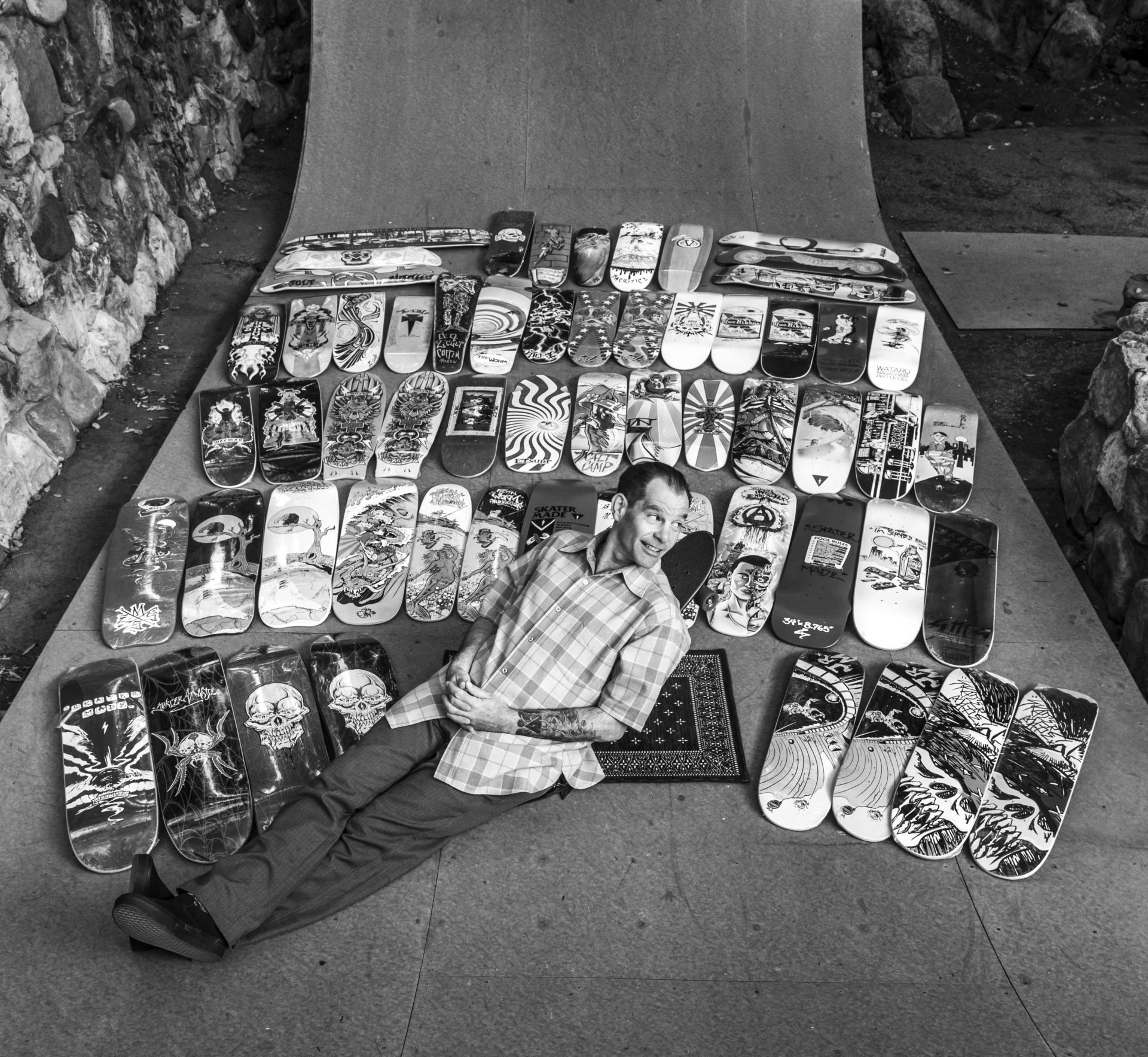
"Good reactions and intentions to me are essential to what cool should be.
Some of the coolest people I know are the most humble."
You’ve been quoted as saying, “Keep Venice Blue. Show respect. Get respect.” As Venice has gentrified, there’s been a lot of tension on the beach. Many people see it as a battle for the soul of Venice. What’s your perspective on old-school Venice versus new?
BS: This is a tough one for me to articulate and digest. Obviously, things have changed and change is a constant. When I say “Keep Venice Blue,” it is repeating a catchphrase that to me means, “stay true/true blue colors. No half positives.” Positive change is part of an evolving future, but what has been happening over the past 25-30 years locally in Los Angeles is a case of location exploitation. Those that choose not to value the history, culture, people, traditions and locations of the area are missing the whole picture. Gentrification is real here. Not to mention the homeless epidemic, another story in and of itself.
It didn’t seem like the majority of the world cared about the sleepy marine-layered beach towns of Santa Monica, Venice, Mar Vista, Marina Del Rey, etc., when I was growing up as a grom in the 1970s. We’d see some TV and movie spots filmed every once in a while, but on the whole it was more of a lurky, open beach-city feeling that taught a young person some street-smarts back in the day, which was a good thing.
I know ego and greed are some of the key factors that are crippling the original community and history here now. Windward Farms, a local family-owned business and institution, has been a staple in the community for 28 years and is a new victim this month to a rent increase of 120%. Getting rid of established family-owned businesses is a commerce mentality that eliminates the essence of what truly makes a location unique to its neighborhood. It’s a travesty that does a disservice to what made this part of the world so special and innovative.
When people like Snapchat move in and do their best to own blockage and attempt to counter-dictate the local culture and business environment for personal interests, it creates a form of a self-inflicted tension. It disrespects the place and flow one chooses to thrive in. Show respect. Get respect. We are to be evolved. If so, consciously we must respect what is thriving before us in areas existing outside of our own agendas. Proper order has a natural flow to it and its urban flow for many of us in the places we call home.
Celebrate with true respect in the communities and institutions that better your/our livelihood. Kicking ass together, as individuals. I feel that.
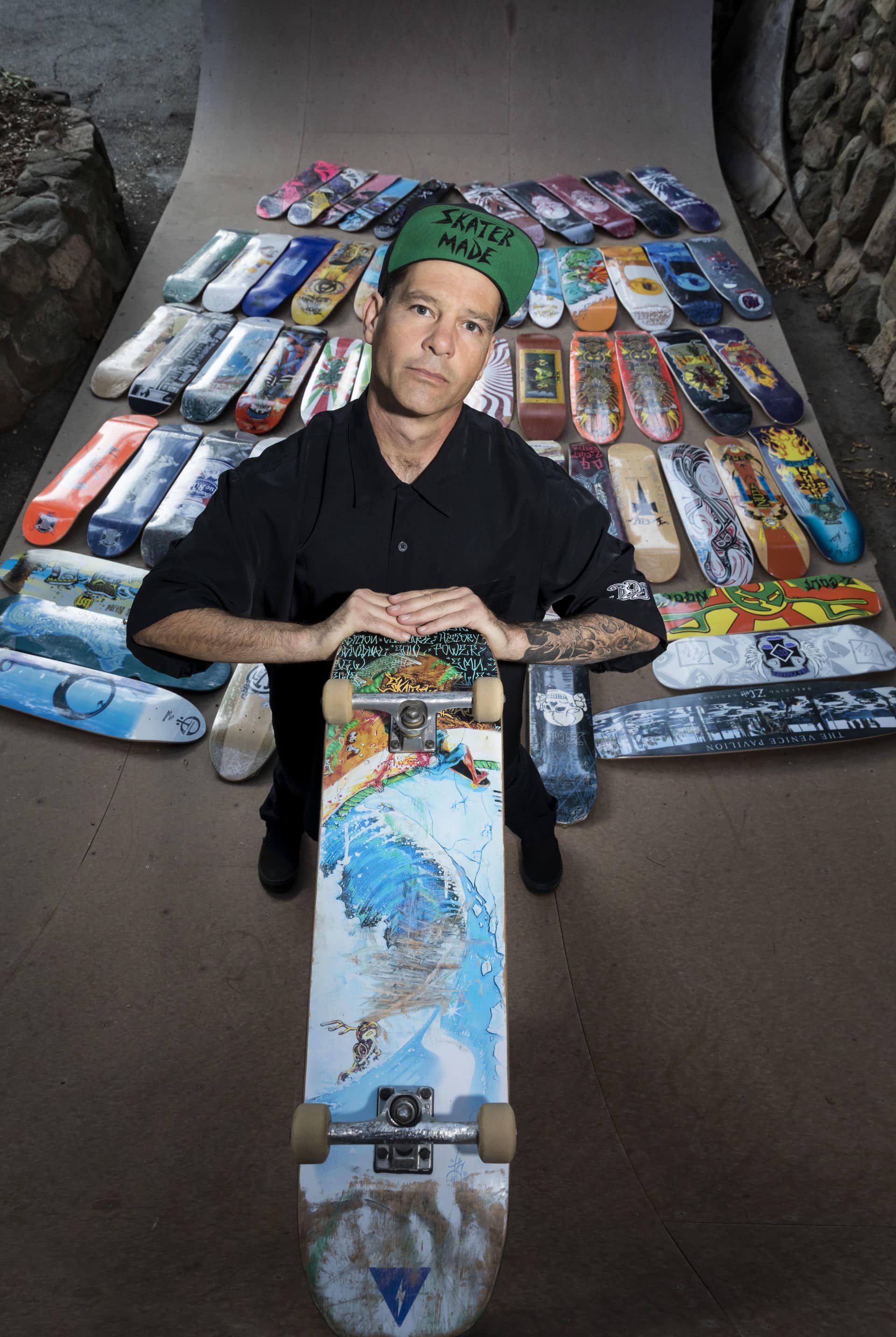
You and I met because you were willing to teach a bunch of crazy Topanga six-year-old boys how to ride. What mentors most inspired you? How do you see your role in the skateboarding community now?
BS: That was epic! Skateboarding is all about having fun in its purest form. I love to skate with the youngsters when they want to ride; it’s always fun that way! My foundation mentors that I am eternally thankful to for their knowledge, friendships and love are my father, my mother, James Wing Woo, Wes Humpston, Francisco Grippa, Grandma Bibi.
My role in skateboarding now feels full-circle in so many ways. I teach and mentor weekly, along with managing the brand’s skateboarding team. I work as the sole controller of operations and all things pertaining to “Skater Made” skateboards. All of a sudden, it feels a bit like “Last O’ The Skate Mohicans” for me when I hear someone call me a legend! (laughs) All things considered, it makes me feel like a survivor who just wants to keep the ride going strong. I am enjoying, creating and having fun with all of it and will do so for as long as I can.
Head to Dana Point This Weekend for Prime Whale Watching and Celebration
Environmentalism, art and community.
Soothing Soaks: 3 California Hot Springs Resorts to Visit Now
Melt away muscle aches and woes in a serene setting.
Get the Latest Stories
